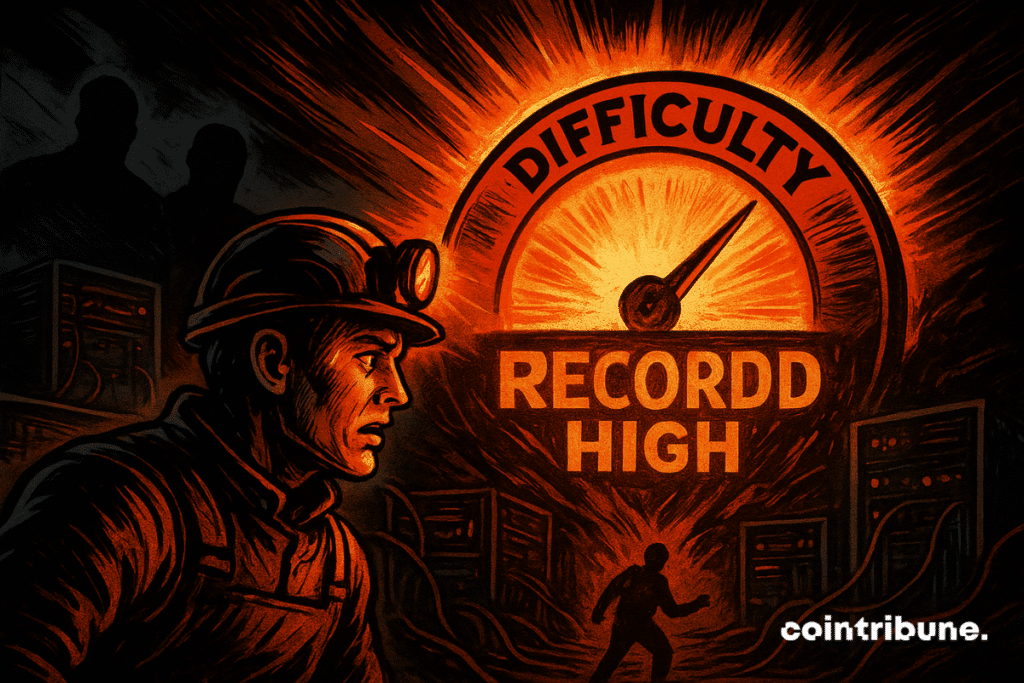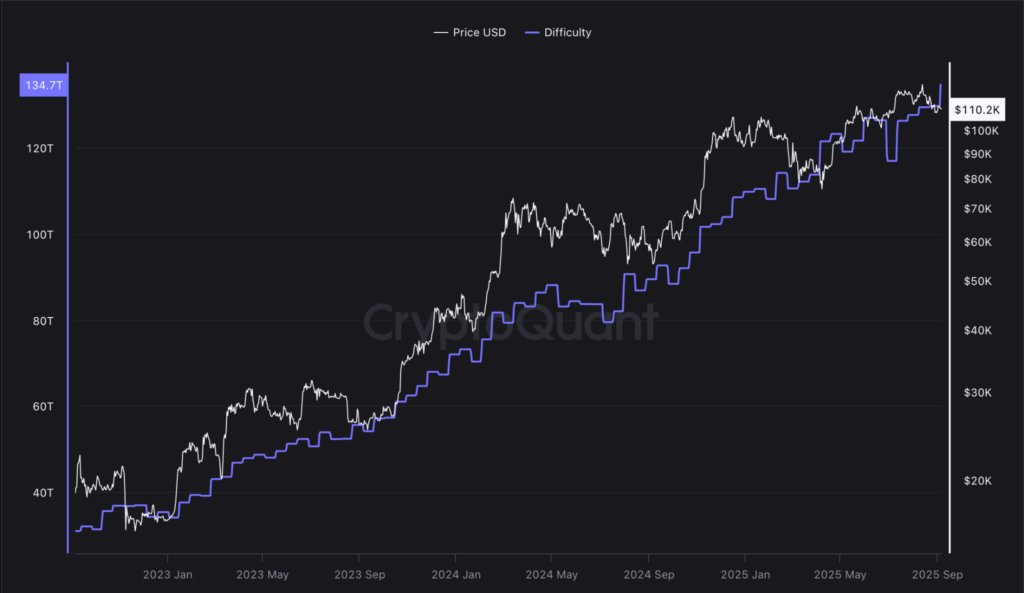Bitcoin Mining Difficulty Hits Record High Amid Volatility and Centralization Concerns
Bitcoin mining difficulty touched a new all-time high as the crypto market descended into volatility following the latest US job data. After hitting an all-time high (ATH) in August, market commentators projected that the difficulty of Bitcoin mining would decrease. However, the mining difficulty has steadily increased as the month progressed, with large players dominating the space.

In Brief
- Bitcoin mining difficulty reached an all-time high of 134.7T, even as the network hashrate dipped from its recent peak.
- Increased costs push mining toward larger firms, raising concerns about Bitcoin network centralization risks.
- Despite competition, three solo miners successfully mined blocks, earning over $1M in rewards across July and August.
- BTC trades at $111,100, slightly down after hitting $113,000 following the release of the US jobs report.
Mining Difficulty Hits Record High as Hashrate Declines
Bitcoin mining difficulty climbed to a fresh all-time high of 134.7 trillion on Friday, as the apex asset witnessed volatility during the trading day. Mining difficulty measures how hard it is for miners to add a new block to a blockchain network.
While the BTC mining difficulty surged, the blockchain’s hashrate has traveled in the opposite direction. As spotted by CryptoQuant, the Bitcoin hashrate has dropped to 967 billion hashes per second after touching an ATH of 1 trillion hashes per second early last month.

In an already highly competitive industry, large firms are increasingly feeling the heat of the heightened operational rigor. Mining firms are now committing more resources to meet the computational requirements to mine blocks on the network.
Market commentators are now beginning to raise questions over the centralization of Bitcoin mining. The increased mining cost means that large firms with strong financial bases and mining pools are now leading the sector.
Solo Bitcoin Miners Score Rare Wins, Earning Over $1M in Block Rewards
Even though large miners continue to dominate the Bitcoin mining space, small and private miners are still recording occasional successful outings, such as claiming the 3.125 BTC block reward, which is valued at over $344,000 at current market rates.
Notably, three solo miners led the market after updating blocks on the BTC ledger to claim the block reward in July and August. On July 3, the first miner added block 903,883, raking in about $350,000 in block subsidy rewards and priority network fees.
Two weeks later, the second solo miner added block 907,283, pulling in $373,000 in reward when measured using BTC’s market rate at the time. Last month, another solo miner mined block 910,440, netting $356,000 in block subsidy rewards and fees paid by network participants.
At the time of writing, Bitcoin is trading at $111,100, down about 1.60% from its Friday high of $113,000, which followed the release of the US jobs report.
Maximize your Cointribune experience with our "Read to Earn" program! For every article you read, earn points and access exclusive rewards. Sign up now and start earning benefits.

James Godstime is a crypto journalist and market analyst with over three years of experience in crypto, Web3, and finance. He simplifies complex and technical ideas to engage readers. Outside of work, he enjoys football and tennis, which he follows passionately.
The views, thoughts, and opinions expressed in this article belong solely to the author, and should not be taken as investment advice. Do your own research before taking any investment decisions.